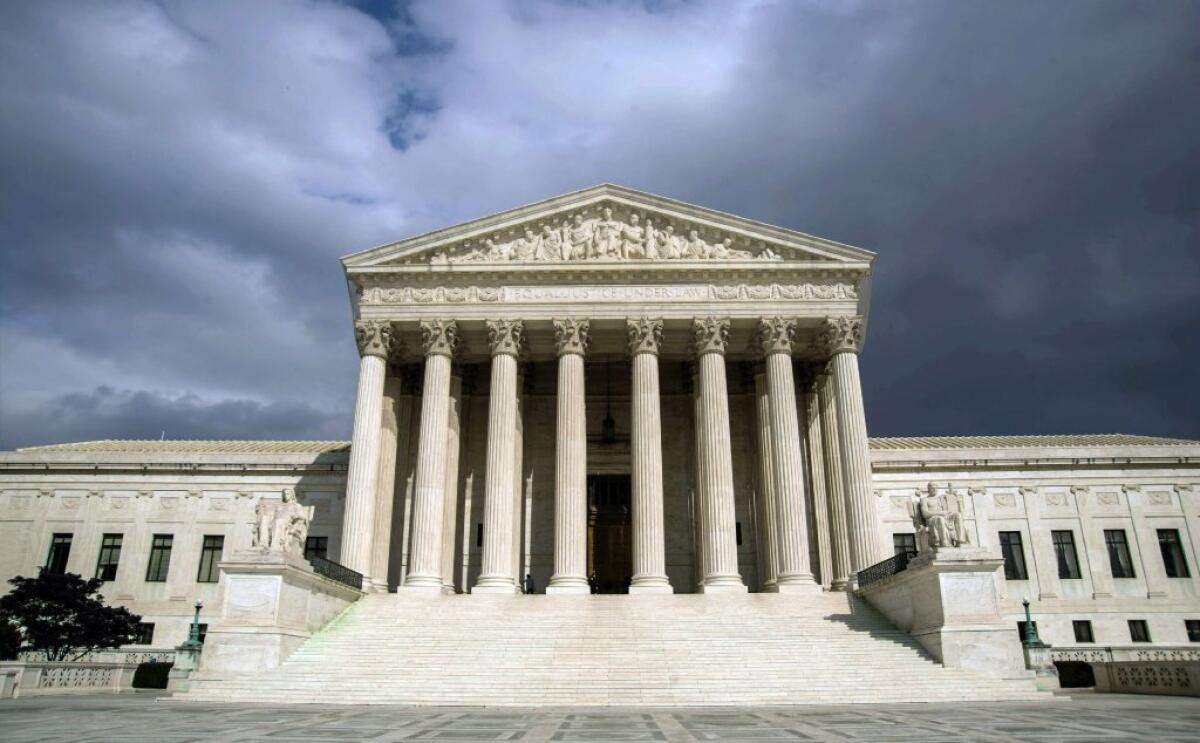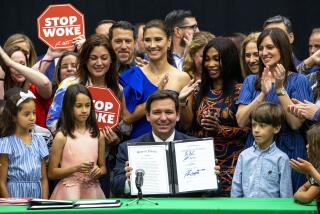Opinion: Don’t rush to judge Supreme Court on gay rights or religious rights

Whether a business can refuse to do business with same-sex couples may be a hot political topic, but it’s apparently not ready for prime time at the U.S. Supreme Court. On Monday, the court declined to review a decision by the New Mexico Supreme Court holding that a photographer had to shoot a same-sex “commitment ceremony.”
But don’t jump to the conclusion that the court refused to take this case because of sympathy for gay rights or an unwillingness to approve religious objections to complying with a particular law. (That is the issue in the Hobby Lobby case involving a company that objects to a federal requirement that it provide certain contraceptives in its employee health plans).
It’s true that the photographer in New Mexico had a religious objection to same-sex marriage, and it’s also true that her case was cited by supporters of SB 1062, the vetoed Arizona bill that would have allowed businesses to raise religious objections to taking on certain customers.
But when the case of Elane Photography vs. Willock reached the U.S. Supreme Court, it wasn’t about religious freedom anymore.
Elaine Huguenin, the Christian photographer who refused to photograph a ceremony uniting two women, had raised a claim under New Mexico’s Religious Freedom Restoration Act. But the state Supreme Court dismissed that claim, concluding that the law didn’t apply because the state government wasn’t a party to the dispute between Huguenin and the same-sex couple. (Never mind that Huguenin was being pressed to comply with a state law against discrimination on the basis of sexual orientation.)
When it comes to the meaning of New Mexico law or the New Mexico Constitution, the state Supreme Court is the last word. But Huguenin also made an argument based on the free speech clause of the 1st Amendment to the U.S. Constitution — namely, that in requiring her to photograph a same-sex ceremony, the state was violating her right against “compelled speech.”
That argument was based on Wooley vs. Maynard, a 1977 decision in which the Supreme Court said New Hampshire couldn’t punish a man for covering up the state motto “Live Free or Die” on his license plate. According to Huguenin, requiring her to use her artistic skills to memorialize a same-sex wedding likewise was forcing her to endorse a message she didn’t believe in — in this case, that two women can be married to each other.
The New Mexico Supreme Court’s ruling on Huguenin’s compelled speech argument could be appealed to the U.S. Supreme Court — and was. But the justices weren’t biting.
Too bad, because (as the Los Angeles Times said in an editorial) there is a good 1st Amendment case for exempting “expressive” occupations such as wedding photographer or speechwriter from the requirement that a business serve all comers. That’s true even if a writer or photographer doesn’t have a religious reason for refusing to craft a message he doesn’t believe in. (A liberal photographer might not want to take flattering pictures of the Koch brothers for their company’s annual report.)
But the Supreme Court’s lack of interest in that issue doesn’t say anything about how it might rule in the Hobby Lobby case — or on the constitutionality of bans on same-sex marriage.
ALSO:
Warning: College students, this editorial may upset you
Follow Michael McGough on Twitter @MichaelMcGough3
More to Read
Start your day right
Sign up for Essential California for news, features and recommendations from the L.A. Times and beyond in your inbox six days a week.
You may occasionally receive promotional content from the Los Angeles Times.







